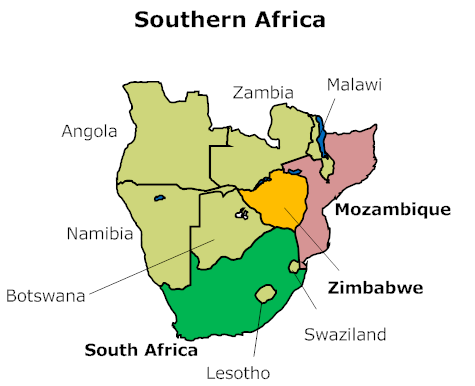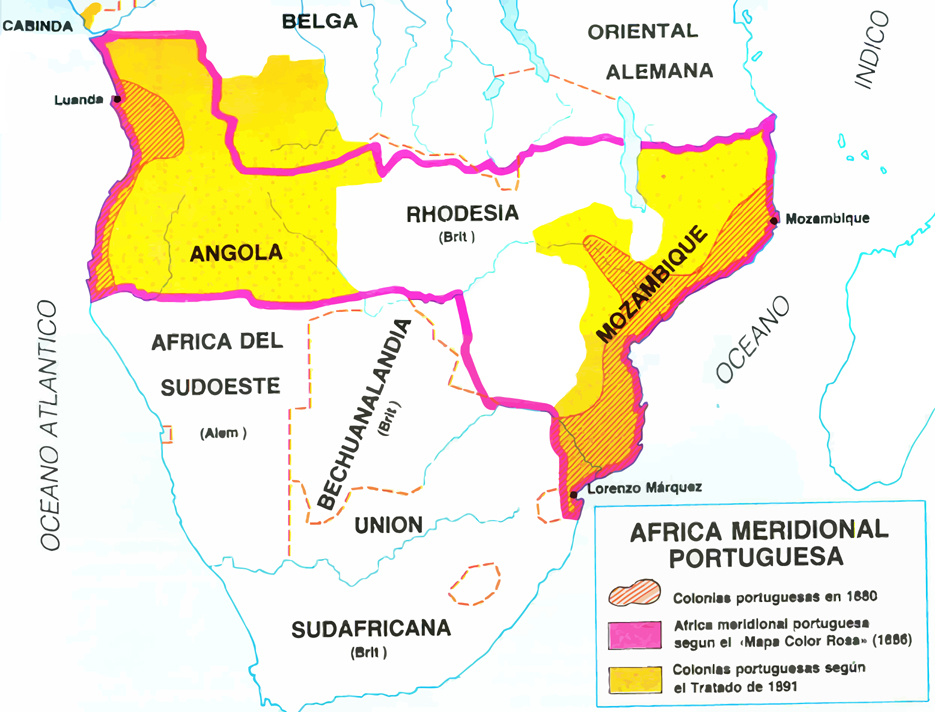Scan barcode
the_bee_writes's review
4.0
One of the first books since ages that totally fascinates me. I do not have a clue about Angola, Portugal or any African country. Agualusa introduces you to a whole new world.
It might be difficult for some readers though as the book is written from the characters different point of views in each chapter. I love this kind of literature as I am a fan of Virginia Wolf who's "To the lighthouse" is written in a similar way. But it is definitely worth a try!
It might be difficult for some readers though as the book is written from the characters different point of views in each chapter. I love this kind of literature as I am a fan of Virginia Wolf who's "To the lighthouse" is written in a similar way. But it is definitely worth a try!
aurelien_mvl's review against another edition
3.0
Um livro de visões, paisagens, músicas e músicos, pessoas, encontros, nascimentos e mortes. Sobretudo uma grande viagem por Angola, África do Sul e Moçambique em jeito de busca de identidade, salvaguardando um humor e uma leveza jazzística. Neste livro aprende-se, convive-se, e fica-se curioso com este continente assustador tornado atraente com as palavras apaixonadas de José Eduardo Agualusa.
rvpa28's review against another edition
adventurous
challenging
informative
mysterious
reflective
sad
medium-paced
- Plot- or character-driven? Plot
- Strong character development? Yes
- Loveable characters? Yes
- Diverse cast of characters? Yes
- Flaws of characters a main focus? Yes
4.75
risky_oak's review
AFRICAN BOOKS MARATHON
BOOK: 6
TITLE: My Father's Wives
AUTHOR: José Eduardo Agualusa
COUNTRY: Angola
First of all the rating:
3 stars.
Why?
Because it was a confusing book.
It didn't deserve 2 stars.
But since I didn't enjoy it to the fullest in order to give it 4 stars it gets 3 stars.
METAFICTION
One of the interesting aspects of this book was its metafictional identity. Footnotes by the protagonist on passages referring to herself. Email transcripts, interview transcripts, phone call transcripts, letters, the author himself as a main character of the book. . .
THE STORY
A young woman named Laurentina, leaves Portugal in order to trace the story of her father she never knew, the celebrated Angolan musician Faustino Manso, who is already (freshly) dead when the novel begins. We see 2 separated yet parallel road trips:

1) Time unknown
Laurentina and 3-4 other people travel from Angola to Mozambique (both Portuguese speaking African countries) through Namibia and South Africa (both Afrikaans speaking countries). We see different perspectives of the road trip from all the persons involved (Laurentina, Pouca Sorte (little luck in Portuguese) the driver, Mandume her boyfriend, Bartolomeu her nephew) those were the obvious ones.
2) Time: November 2005 - March 2007
[a:José Eduardo Agualusa|484376|José Eduardo Agualusa|https://d2arxad8u2l0g7.cloudfront.net/authors/1274809393p2/484376.jpg] the author of the book on a road trip researching for the book you hold in your hands. He travels with Karen Boswall. Don't ask me who she is. I have no idea! They take a similar route to that of Laurentina. The author dedicated this book to her and a few others (also present in the book) ← metafiction again.
WHY 3 STARS
Because the average length of the chapters was 3 pages and it had a pattern of at least 5 interchangeable narrators. And so many names, so many wives, children, grandchildren, nephews, friends, insignificant names that showed up at the beginning, disappeared, and reappeared at the end of the book, shadowy characters. You need to take notes in order to:
1) understand the narrative and therefore:
2) appreciate the book
I feel this book doesn't deserve 3 stars. I'm going to re-read it in the future, taking notes and be prepared about its fragmented style.
ANOTHER INTERESTING ASPECT
It was funny and it had a caustic humour for everything, especially politics, i.e.
" 'Homesick?! Homesick for the United States?! Girl I don't feel homesick at all! And when it happens that I do feel homesick, you know what I do? I turn on the TV, look for CNN, listen to Bush speaking, two minutes, three minutes, I don't deserve more than that, no one does, and I thank God I no longer have anything to do with that country.' " p.311
or references to authors I read recently:
"The hotel itself, is called [b:A Varanda do Frangipani|712411|A Varanda do Frangipani|Mia Couto|https://d2arxad8u2l0g7.cloudfront.net/books/1326503220s/712411.jpg|698673], like the novel by [a:Mia Couto|49680|Mia Couto|https://d2arxad8u2l0g7.cloudfront.net/authors/1249650792p2/49680.jpg]. I wanted to know if he'd done it on purpose.
'We have a veranda, and a frangipani, haven't you noticed?' " p.224
At university I learnt many things about British Imperialism in Africa, or Belgian ([b:Heart of Darkness|9410307|Heart of Darkness|Joseph Conrad|https://d2arxad8u2l0g7.cloudfront.net/books/1370646628s/9410307.jpg|2877220]). With this book and Mia Couto's book above I learnt more about Portuguese Imperialism in African countries and how it leaves its stigma decades afterwards.

I will finish by saying that this book needs to be read again in order to appreciated it. If you want to read it, do it. Just bear in mind what I mentioned above (especially in section WHY 3 STARS)
P.S. A few magical realism elements were present throughout the book.
Rainbow machines, mermaids impregnated by sailors, witch doctors, haunted musical organs, a woman trapped in an 11 year old girl's body etc.
You can see the complete list of my African Books here:
BOOK: 6
TITLE: My Father's Wives
AUTHOR: José Eduardo Agualusa
COUNTRY: Angola
First of all the rating:
3 stars.
Why?
Because it was a confusing book.
It didn't deserve 2 stars.
But since I didn't enjoy it to the fullest in order to give it 4 stars it gets 3 stars.
METAFICTION
One of the interesting aspects of this book was its metafictional identity. Footnotes by the protagonist on passages referring to herself. Email transcripts, interview transcripts, phone call transcripts, letters, the author himself as a main character of the book. . .
THE STORY
A young woman named Laurentina, leaves Portugal in order to trace the story of her father she never knew, the celebrated Angolan musician Faustino Manso, who is already (freshly) dead when the novel begins. We see 2 separated yet parallel road trips:

1) Time unknown
Laurentina and 3-4 other people travel from Angola to Mozambique (both Portuguese speaking African countries) through Namibia and South Africa (both Afrikaans speaking countries). We see different perspectives of the road trip from all the persons involved (Laurentina, Pouca Sorte (little luck in Portuguese) the driver, Mandume her boyfriend, Bartolomeu her nephew) those were the obvious ones.
2) Time: November 2005 - March 2007
[a:José Eduardo Agualusa|484376|José Eduardo Agualusa|https://d2arxad8u2l0g7.cloudfront.net/authors/1274809393p2/484376.jpg] the author of the book on a road trip researching for the book you hold in your hands. He travels with Karen Boswall. Don't ask me who she is. I have no idea! They take a similar route to that of Laurentina. The author dedicated this book to her and a few others (also present in the book) ← metafiction again.
WHY 3 STARS
Because the average length of the chapters was 3 pages and it had a pattern of at least 5 interchangeable narrators. And so many names, so many wives, children, grandchildren, nephews, friends, insignificant names that showed up at the beginning, disappeared, and reappeared at the end of the book, shadowy characters. You need to take notes in order to:
1) understand the narrative and therefore:
2) appreciate the book
I feel this book doesn't deserve 3 stars. I'm going to re-read it in the future, taking notes and be prepared about its fragmented style.
ANOTHER INTERESTING ASPECT
It was funny and it had a caustic humour for everything, especially politics, i.e.
" 'Homesick?! Homesick for the United States?! Girl I don't feel homesick at all! And when it happens that I do feel homesick, you know what I do? I turn on the TV, look for CNN, listen to Bush speaking, two minutes, three minutes, I don't deserve more than that, no one does, and I thank God I no longer have anything to do with that country.' " p.311
or references to authors I read recently:
"The hotel itself, is called [b:A Varanda do Frangipani|712411|A Varanda do Frangipani|Mia Couto|https://d2arxad8u2l0g7.cloudfront.net/books/1326503220s/712411.jpg|698673], like the novel by [a:Mia Couto|49680|Mia Couto|https://d2arxad8u2l0g7.cloudfront.net/authors/1249650792p2/49680.jpg]. I wanted to know if he'd done it on purpose.
'We have a veranda, and a frangipani, haven't you noticed?' " p.224
At university I learnt many things about British Imperialism in Africa, or Belgian ([b:Heart of Darkness|9410307|Heart of Darkness|Joseph Conrad|https://d2arxad8u2l0g7.cloudfront.net/books/1370646628s/9410307.jpg|2877220]). With this book and Mia Couto's book above I learnt more about Portuguese Imperialism in African countries and how it leaves its stigma decades afterwards.

I will finish by saying that this book needs to be read again in order to appreciated it. If you want to read it, do it. Just bear in mind what I mentioned above (especially in section WHY 3 STARS)
P.S. A few magical realism elements were present throughout the book.
Rainbow machines, mermaids impregnated by sailors, witch doctors, haunted musical organs, a woman trapped in an 11 year old girl's body etc.
You can see the complete list of my African Books here:
More...